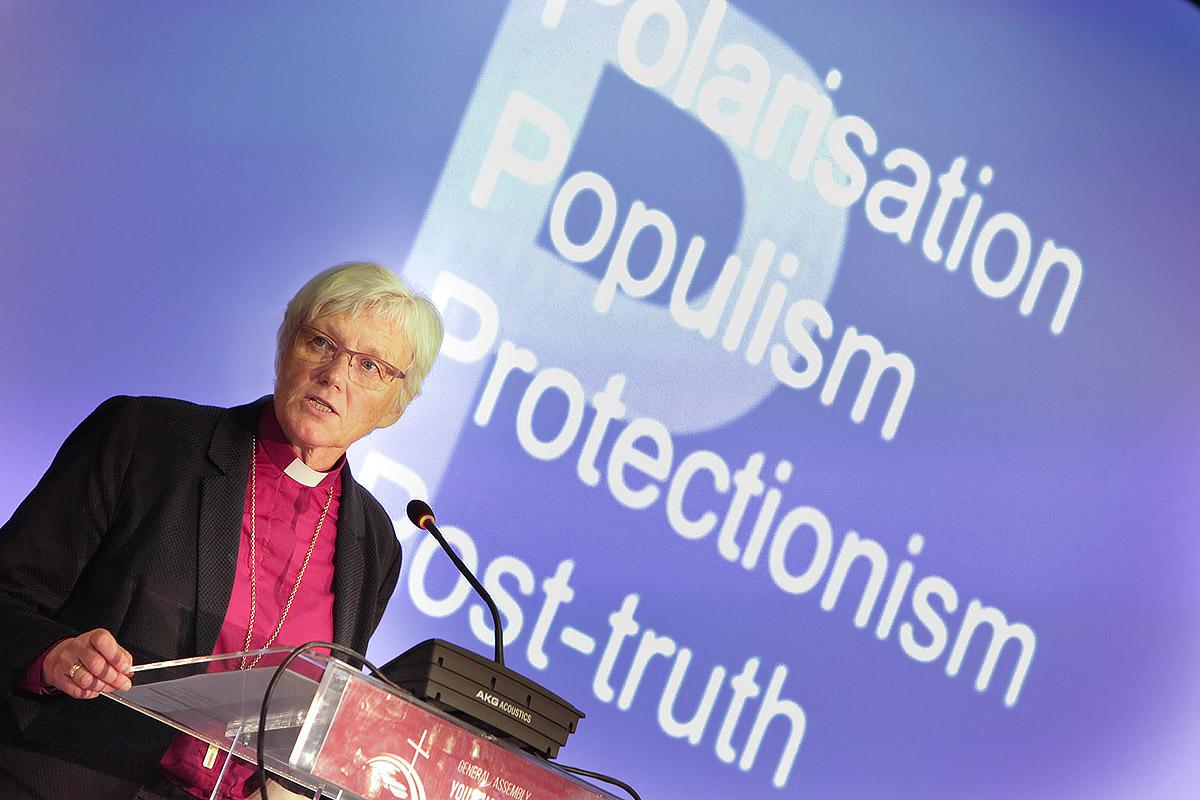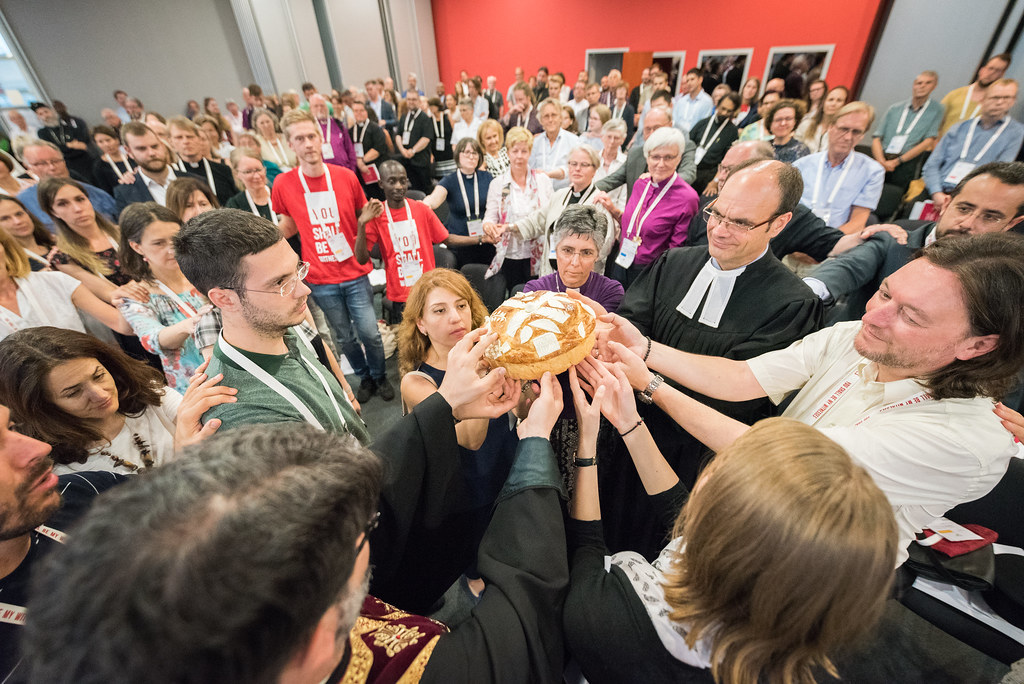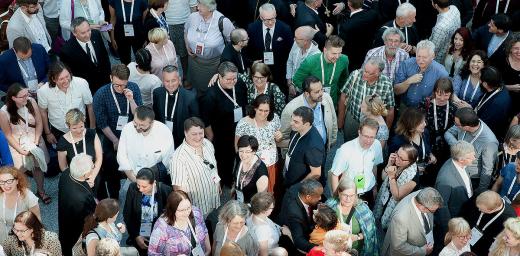Witnessing - a challenge for Europe

Archbishop Antje Jackelén during her keynote presentation at the CEC General Assembly in Novi Sad. Photo: Mladen Trkulja/CEC
LWF Vice-President delivers keynote address at CEC Assembly
(LWI) - “Witness is about healing, even in situations where we are forced to resist, to question, to argue; even when the message of the gospel leads us into controversy,” said Archbishop Dr Antje Jackelén from the Church of Sweden and Vice-President for the Nordic Region of the Lutheran World Federation (LWF) in a keynote address at the General Assembly of the Conference of European Churches (CEC) in Novi Sad, Serbia, on 4 June
The witness of the church: holistic and public
“The common witness of the church is both holistic and public,” Jackelén said. “God’s holistic mission includes proclaiming the Gospel, diakonia, serving the neighbor and becoming neighbors to each other, advocating for human dignity, justice, peace and reconciliation, as well as for the integrity of creation.”
The common witness of the church is public, because God calls the church to engage in the public space.
“The common witness of the church is public, because God calls the church to engage in the public space,” says Jackelén. She recommended the document “The Church in the Public Space”, adopted by the LWF in 2016 to follow up on this. Quoting the “ABCDE of the Church’s Engagement in the Public Space” from this document she pointed out that churches should assess public issues in participatory ways, build relationships of trust, challenge injustice, discover signs of hope and empower people in need. This was especially important for Christians in a minority context.
Witness driven by “divine dissatisfaction” and “divine surprise”
Jackelén identified “the lack of a credible hope” as the underlying cause of four dangers of our time: polarization, populism, protectionism (often manifested as nationalism) and post-truth.
She then described the “what” and the “how” of witnessing by presenting one driven by “divine dissatisfaction” and one driven by “divine surprise”.
Martin Luther King, she is convinced, is a witness “driven by divine dissatisfaction”. The black community in the USA looked to the black church not only for spiritual nourishment in hymns and prayers, but also for leadership and social and political support. It was in need of witness that is holistic and public.
A “witness driven by divine surprise” she found in the figure of “Miss Cleopas” whom she saw depicted in an Ethiopian icon of the Biblical story of Emmaus. The person accompanying Cleopas on the way to Emmaus being a “person from his house” it might have been his wife, Jackelén argued.
“I think it is a good idea to open our eyes, together with this Ethiopian icon painter, for Miss Cleopas and her witness and to watch out for the Miss Cleopasses rendered invisible in the history of our churches. They are there. In great numbers.” She called on delegates to “let us call them by their names. Let us affirm their gifts as witnesses of the gospel and have them participate fully in the ministry of the church. Because there indeed were two disciples at that dinner table in Emmaus that Easter day.”
“May God bless our witnessing with humility and of speaking candidly, with good courage to speak and excellent listening skills! For the sake of healing,” she concluded her address to the CEC General Assembly.
The CEC General Assembly took place in Novi Sad, Serbia, from 31 May to 6 June 2018. Around 500 delegates and guests from various confessions across Europe – Lutheran, Reformed, United, Orthodox, Anglican, Methodist, Baptist and others – met under the Assembly theme “You shall be my witnesses” (Acts 1:8) with its three sub-themes “Hospitality”, “Justice” and “Witness”.
Photos of the CEC General Assembly




